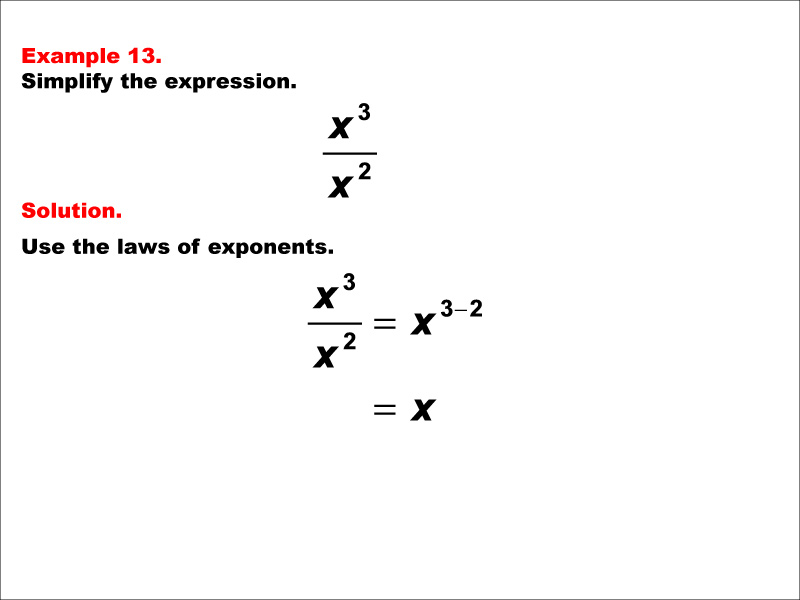
Display Title
Math Example--Exponential Concepts--Laws of Exponents: Example 13
Display Title
Math Example--Exponential Concepts--Laws of Exponents: Example 13

Topic
Exponents
Description
This example demonstrates the simplification of an expression involving division with exponents. The problem involves simplifying x3 / x2, which results in x. This showcases how exponents behave when dividing terms with the same base, illustrating the subtraction of exponents in division.
Understanding how to handle expressions with exponents in division is crucial in algebra and higher mathematics. These examples help students grasp the concept that when dividing terms with the same base, the exponents are subtracted. By presenting various scenarios, students learn to apply these rules confidently in different mathematical contexts.
Exposure to multiple worked-out examples is essential for students to fully comprehend the concept of exponents in division. Each example builds upon previous knowledge, reinforcing core principles while introducing new complexities. This approach helps students develop a deeper understanding and the ability to tackle more challenging problems involving exponents.
Teacher's Script: Now, let's look at an example involving division with exponents: x3 / x2. Remember, when dividing terms with the same base, we subtract the exponents. So, we're subtracting 2 from 3. What do we get? That's right, x1, which is simply x. This is a fundamental concept when working with exponents in division. Notice how this simplification reduces the expression to its simplest form, making it easier to work with in more complex equations.
For a complete collection of math examples related to Exponents click on this link: Math Examples: Laws of Exponents Collection.
| Common Core Standards | CCSS.MATH.CONTENT.8.EE.A.1, CCSS.MATH.CONTENT.HSA.SSE.B.3.C |
|---|---|
| Grade Range | 8 - 12 |
| Curriculum Nodes |
Algebra • Exponential and Logarithmic Functions • Laws of Exponents |
| Copyright Year | 2013 |
| Keywords | exponents, laws of exponents |